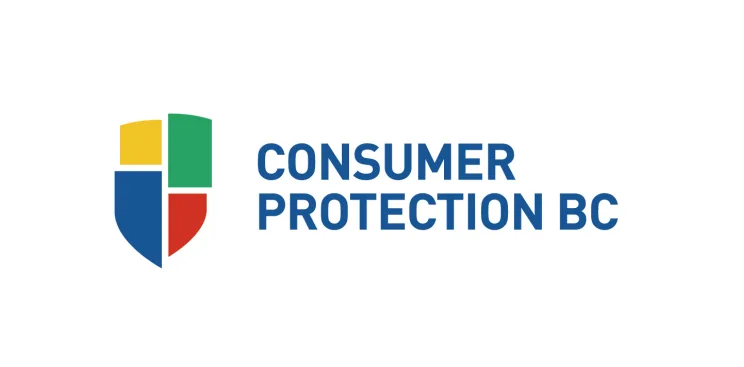
Can I change my mind after signing a two-year contract with a fitness centre?
You get something home and decide you don't like it, can't afford it, or could find it cheaper somewhere else. Can you bring it back? Learn about your rights and options if you change your mind about a purchase. (Your rights are different if there is a problem with the item you purchased.)
What you should know
“My friend Jan talked me into going to her yoga studio for a class. I had fun, and the studio was beautiful. I decided to sign up for a membership on the spot. The next day I regretted it. I just can’t afford the $100 per month for a full year. Thankfully I had 10 days during which I could change my mind and cancel, without any penalty. That afternoon I sent the yoga studio an email saying I was cancelling the contract.“
– Surita, Vancouver, BC

With some purchases, you can change your mind during a cooling-off period.
A cooling-off period means a period of time where you can think about what you bought and change your mind. During this period, you can cancel the contract or return the item without paying any penalty. You don’t need to provide any reason for cancelling.
The length of the cooling-off period varies depending on what you are buying.
Under BC law, you have a cooling-off period when you sign a contract:
for a product or service you buy at home: for any direct sales contract, where you buy something in person at a place other than the seller’s permanent place of business, you have a cooling-off period of 10 days after you receive a copy of the contract
to join a fitness club or yoga studio: for any continuing services contract, where you receive services on an ongoing basis, you have a cooling-off period of 10 days after you receive a copy of the contract
for cellphone service: when signing a cellphone contract, you have a cooling-off period of 15 days after your cellphone service begins
to lease a car: when leasing a car, you have a one clear day cooling-off period after you sign the lease
to buy a home: if you buy a home, you have a cooling-off period of three business days to cancel the contract
to buy a newly-built condo: if you buy a newly-built condo, you have a cooling-off period of seven days after you sign the contract or acknowledge seeing the developer’s disclosure statement, whichever comes later
For a product or service you buy online, you may have a cooling-off period depending on the circumstances.
Even though there is a cooling-off period when you lease a car, there is no cooling-off period when you buy a car. In fact, most purchases have no cooling-off period.
Examples of common purchases where there is no cooling-off period in British Columbia include:
making a retail purchase, whether in a store or online (there are some circumstances where there is a cooling-off period for online purchases)
buying or financing a car
If you bought something from a retail store and have changed your mind, check the store’s policy on returns.
Many retail stores have a return policy that allows you to return items, on certain conditions. The policy may say items need to be returned within a certain number of days, or items may be exchanged but not returned for a refund. Many stores post their return policy near the cash register or state it on the back of their receipt.
In law, a return policy that is posted in the store or included on your receipt would become a term of your sale contract with the store. The result is that you have the legal right to return items within the terms set out in the return policy.
For example, let’s say a retail store states on their receipt, “Satisfaction guaranteed. If you’re not satisfied with any item, simply return it.” In law, this statement would be considered to be a term of any sale the store makes. You don’t need to sign anything for this term to become part of your sale contract with the store. You have the legal right to return the product for a full refund, even if what you bought is perfectly alright.
If there is no time limit specified, the law would probably say that the buyer has a reasonable time to ask for the refund. There is not a set definition for “reasonable time." It varies depending on, for example, what was bought and where it was bought.
Some stores say that they accept returns as long as the product is, essentially, unused. If the store doesn’t say specifically what “unused” means, the law would probably say that the product has to be resalable as new or near-new for the buyer to be able to ask for a refund.
Work out the problem
If you decide you do not want to go ahead with a purchase during a cooling-off period, you need to give the other party written notice telling them this. Once they get the notice and you return the item, you have no further legal obligations under the contract.
The number of days starts counting on the day after the cooling-off period begins. Let’s say you sign up for a fitness club membership on February 10 and they give you a copy of the contract when you sign up. Your 10-day cooling-off period starts counting the next day, on February 11, and goes up to and including February 20.
In providing the written notice, you can use any form of written communication — email, mail or courier for example.
Sending written notice
If you’re close to the end of the cooling-off period, it’s best to send the written notice in a way that provides proof it was given, such as by registered mail.
If you change your mind about a purchase, you need to return the item to the seller.
Most sellers give instructions on how to return items. If you’ve bought something online, the seller may have included a return label with your order.
When you return the item, point to any return policy that you are relying on.
Whether you are seeking a refund or an exchange, you’ll stand a better chance if you provide the receipt and return the item in its original packaging.
Who can help

Consumer Protection BC
Assists with some consumer problems and contracts. Includes online complaint form.

Better Business Bureau (BBB)
Receives complaints about local businesses that are members.
